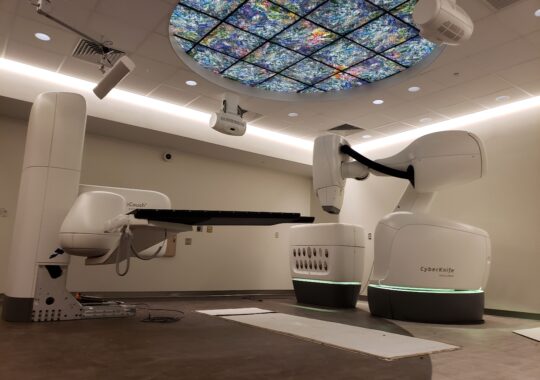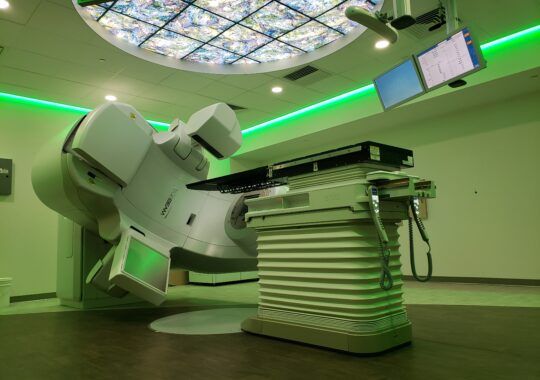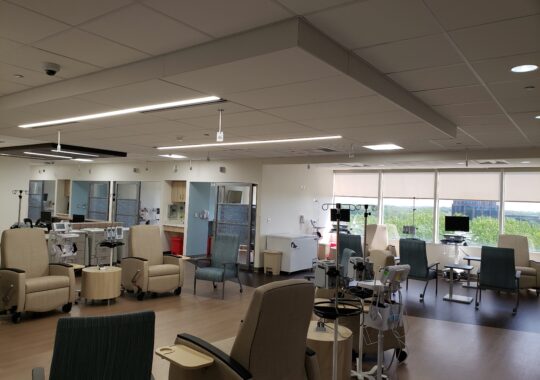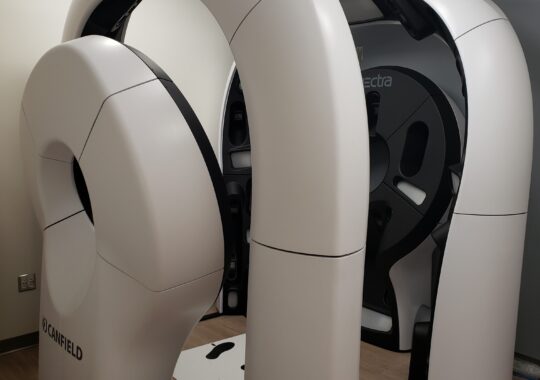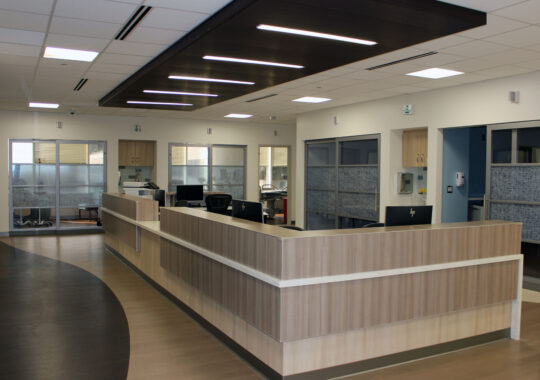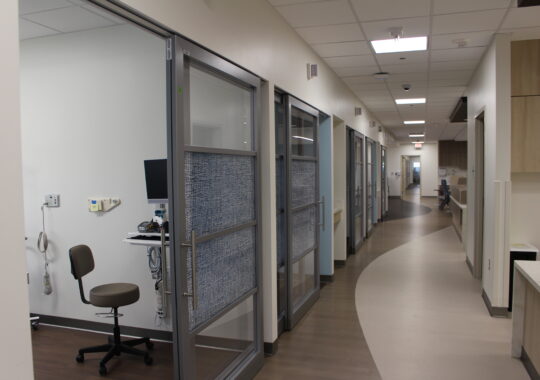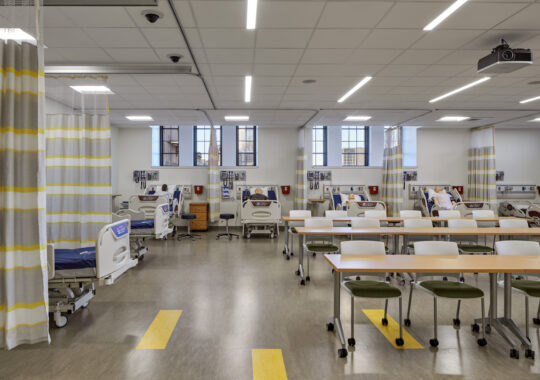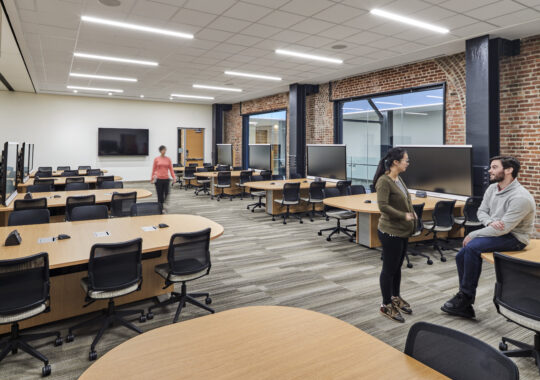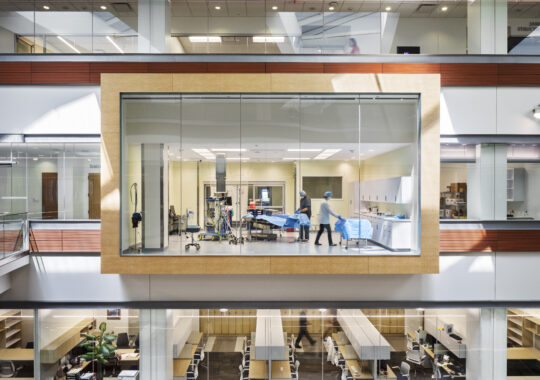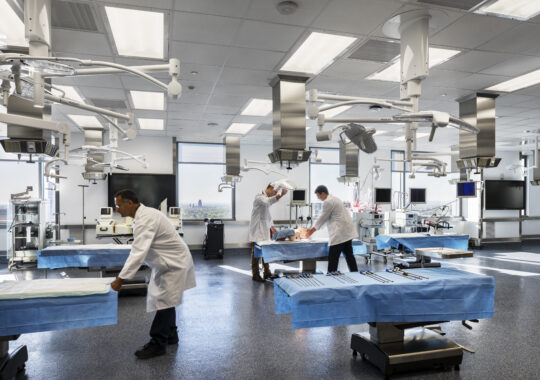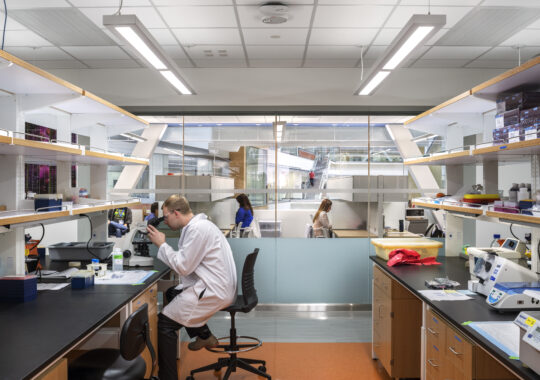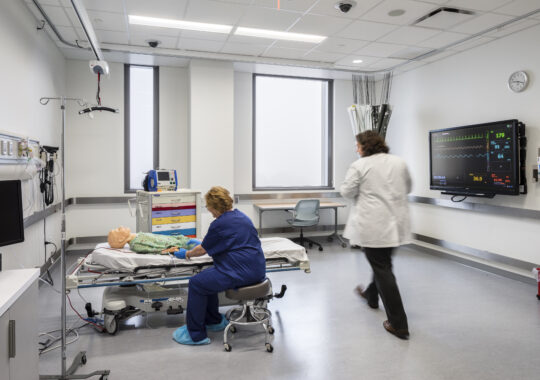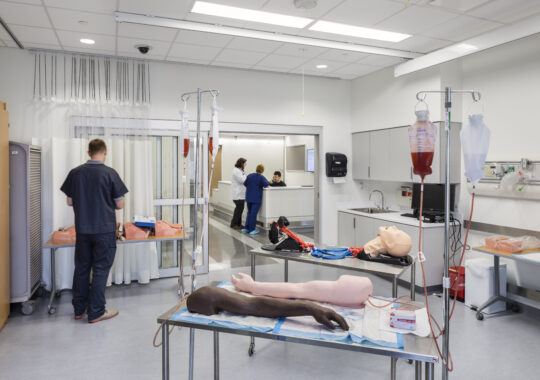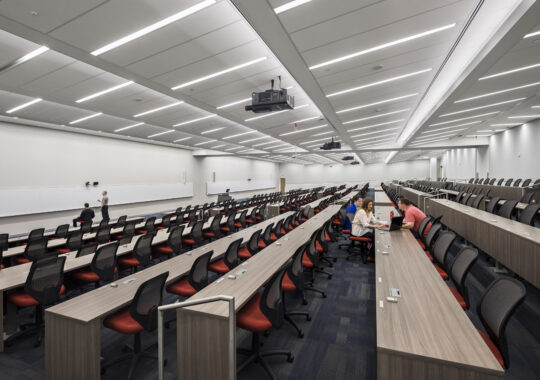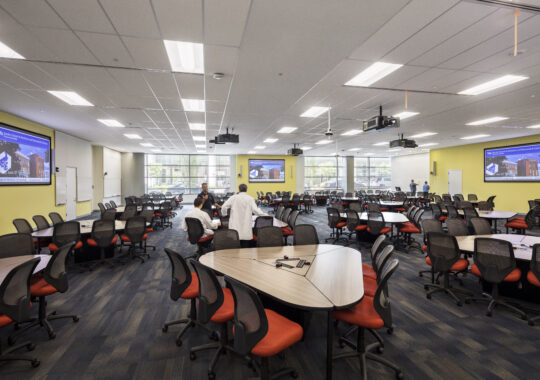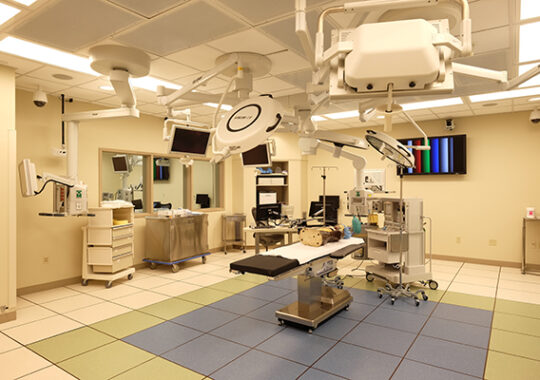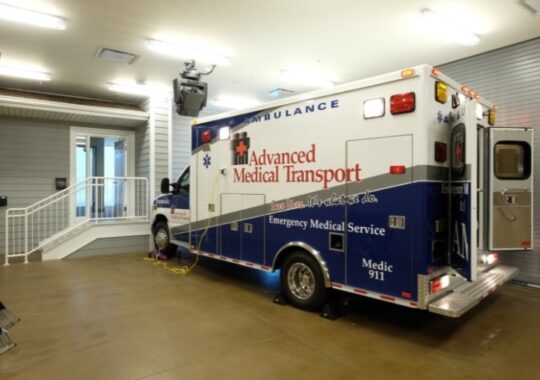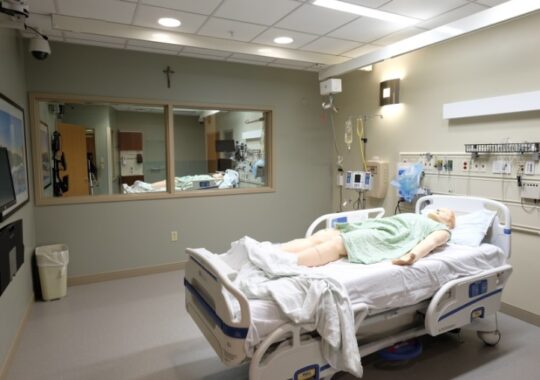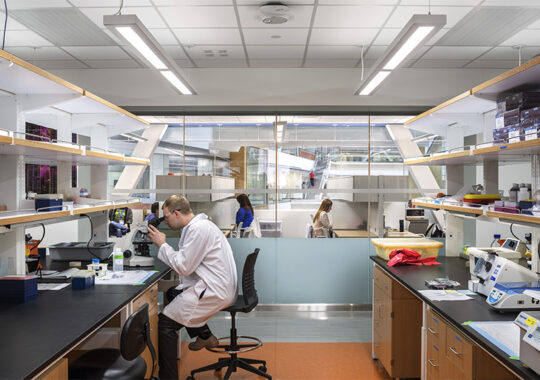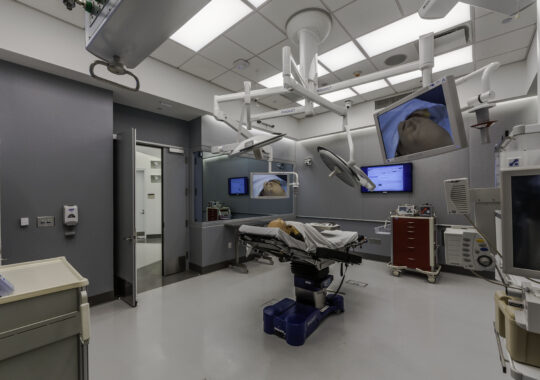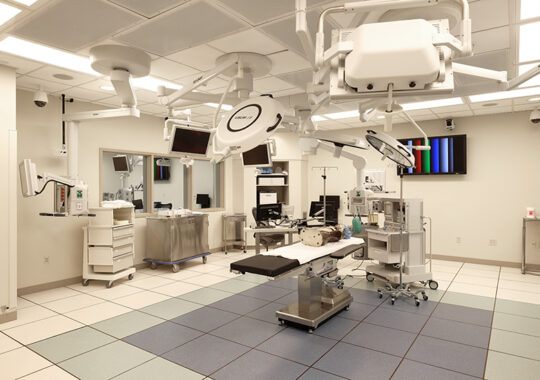James Ticer, Principal and SM&W’s Medical Equipment Planning Discipline Leader, is often asked about our medical equipment planning services. He sat down and tackled the tough questions facing our industry.
See what he had to say below:
Why is it necessary to use medical equipment planners?
Interestingly enough, we see this question quite often from healthcare organizations when looking at construction projects. Outfitting a modern hospital facility is a complex process requiring many skill sets including an expertise in space planning, biomedical engineering, information technologies and project management. Having an in-depth knowledge about specific medical devices is only part of what is needed to select and specify the most appropriate technology and systems for use in any healthcare facility. Hospitals have become a series of integrated components and can no longer serve the clinical needs of the patient utilizing only stand-alone devices. There is the need for a new way of thinking about how to collect and manage equipment related information. Medical equipment planning evolved as a professional discipline to respond to the need for a vendor independent, objective, comprehensive and systematic approach to managing information relating to medical equipment selection, budgeting, documenting, procuring and commissioning.
How does SM&W assess budgetary restrictions in order to benefit their clients?
SM&W proactively addresses medical equipment and healthcare technology issues that may impact project budgets. By acting as an objective expert, when questions related to high-cost medical equipment arise we can be conscious of the ROI for the client. This happens most often when a physician prefers a vendor or model/type of equipment. These preferences are not always based upon all of the relevant clinical, operational and financial information available for a particular medical equipment item. Having an independent, knowledgeable partner, such as SM&W, who can provide expert guidance and information, can represent a significant cost savings to our client’s healthcare projects.
Medical equipment represents the second largest budget line for a new hospital construction project.
Selecting the most appropriate equipment that supports the clinical programs of the hospital is critical. This will prevent the buying of equipment that is not needed or over specified. Acquiring this equipment in a competitive environment will save our client a great deal of money. Providing the design team with consistent and comprehensive documentation for the planning, structural and infrastructure requirements of equipment, while anticipating flexibility and change, will reduce the number of costly change orders in the latter stages of a project. Considering the overall cost of medical equipment on a given healthcare project, the complexity of information that needs to be shared by all the stakeholders and the number of vendors involved, utilizing an equipment planning consultant is justified.
What is the benefit of ME planning in terms of future hospital operations, management, and cost savings?
The true benefit of medical equipment planning from a long term perspective is having a healthcare facility that is not only prepared to provide patient care aligned with the client’s strategic vision from the first day of operation, but flexible enough to do so years afterwards. Given the ever-changing landscape of healthcare, there is a risk of including new and emerging medical equipment technology in a project when it may not be appropriate for the vision of patient care in a new facility. This can represent a tremendous cost in capital funds that may have been expended needlessly, for equipment poorly serves a facility’s clinical, operational and financial goals. One example would be the use of surgical robotics in the operating room. The cost for such systems is quite high (e.g., $1.8M USD for a currently available system in the US), but the clinical indications for use are somewhat limited. Additionally, one of the companies selling surgical robotics systems are quite adept at convincing surgeons to be strong advocates for their products, despite these issues. SM&W can assist our client in navigating the issues related to this kind of medical equipment technology and make informed and reasoned decisions on whether it makes sense to include in a project.



